This story first appeared at ProPublica. ProPublica is a Pulitzer Prize-winning investigative newsroom. Sign up for The Big Story newsletter to receive stories like this one in your inbox.
Ever since claims of election fraud arose in 2020, Wisconsin has seen its share of quixotic attempts to taint the presidential results.
A group of phony electors tried to claim the state’s electoral votes for Donald Trump. Wisconsin’s top lawmaker launched a yearlong inquiry led by a lawyer spewing election fraud theories. And its courts heard numerous suits challenging the integrity of the 2020 election and the people administering it.
All those efforts failed, sometimes spectacularly.
But on a more fundamental level, the election deniers succeeded. They helped change the way Election Day will look in 2022 for crucial midterm elections in Wisconsin — and they are creating an even more favorable climate for Trump and Republicans in 2024.
This summer, the conservative majority on the Wisconsin Supreme Court banned most drop boxes for ballots, which had provided another quick and convenient method of voting during the pandemic, rather than relying on the mail. Until a federal judge intervened, the ruling also meant that people with disabilities could not have help delivering their ballots to their municipal clerks.
More recently, in Waukesha County, a judge sided with the Republican Party in a ruling that barred local clerks from fixing even minor errors or omissions — such as a missing ZIP code — on absentee ballot envelopes. The clerks could contact the voter or return the ballot to be corrected. In a state already known for limiting voter access, this was another example of a push toward more controls.
And the Wisconsin Assembly and the Senate, both dominated by Republicans, have passed a raft of bills that would tighten voting laws. Each was vetoed by Gov. Tony Evers, a Democrat. But Evers is in a close race for reelection against Republican Tim Michels, who has said that “on day one” he will call a special session of the Legislature to “fix the election mess.”
Philip Rocco, associate professor of political science at Marquette University in Milwaukee, describes a dynamic he has seen across the country playing out on a large scale in Wisconsin. An onslaught of attacks on the voting process, he said, produces “an atmosphere of procedural chaos going into Election Day.”
“Just in general, it’s created a dangerous environment for elections to occur in.”
Republicans, who often benefit from lower turnout, frame the battles around issues of law, while Democrats argue that the fight is over voting rights. Neither side sees any benefit in giving in.
The seemingly daily news of legal machinations, legislative committee hearings, proposed laws or official investigations of Wisconsin’s election system have left many voters worried about what to expect when they next try to cast a ballot and unsure of whether their vote will count.
A swing state with 10 electoral votes and a history of razor-thin margins, Wisconsin will once again be a key prize in the 2024 presidential race.
Just how important the state is became clear in August, when the Republican National Committee announced that it will hold its 2024 convention in Milwaukee, a typically overlooked, Democratic-led city. The convention will saturate the state’s largest media market, reaching the conservative-leaning suburbs and the quiet towns and farms beyond.
But first comes November’s midterm election, with a chance to consolidate Republican power in the state and shape oversight of coming elections. Both ends of the political spectrum are keenly aware of the stakes.
“What can happen in 2024 is largely going to be determined by what happens this November,” said Wisconsin attorney Jeffrey Mandell, president of a progressive firm dedicated to protecting voting rights.
Endless Legal Battles
Nine attorneys, a parade of dark suits and briefcases, descended on a Waukesha County courtroom in southeast Wisconsin in September. Once again, the extreme minutiae of Wisconsin election law was being litigated.
The question before them: how to deal with absentee ballot envelopes that arrive with only partial addresses of witnesses?
Until then, municipal clerks had been able to simply fill in the information. Now, the Republican Party of Waukesha County argued that was unlawful and wanted to prohibit clerks from doing so. For some voters, that could mean having their ballots returned and figuring out how to fix them in time to have their vote counted.
A lawyer for the GOP-controlled Legislature favored a prohibition. Lawyers for government regulators, Democrats and the League of Women Voters argued against it. Ultimately, the GOP side prevailed.
In his ruling, Circuit Judge Michael J. Aprahamian added his voice to the doubts about absentee voting in Wisconsin and about the oversight provided by the bipartisan Wisconsin Elections Commission, which has seen its every move scrutinized since Trump and his allies started questioning the 2020 results in Wisconsin.
Aprahamian excoriated the commission, saying that “it is little wonder that proponents from all corners of the political spectrum are critical, cynical and suspicious of how elections are managed and overseen.”
As court scenes like these play out elsewhere in Wisconsin, a healthy slice of the litigation can be traced to one man: Erick Kaardal, a Minnesota lawyer and special counsel to the anti-abortion Thomas More Society, a nonprofit law firm.
Despite some high-profile setbacks in Wisconsin, Kaardal told ProPublica he plans to keep scrutinizing the fine points of Wisconsin election law, a subject that takes up at least 122 pages in state statute.
His ongoing targets include the Wisconsin Elections Commission, which interprets laws and gives guidance to municipal clerks around the state; the Electronic Registration Information Center, a voter roll management consortium; and the Center for Election Innovation & Research, a progressive nonprofit that seeks to improve turnout.
“We’ll be litigating with the WEC and ERIC and CEIR for years to come,” Kaardal said.
Kaardal’s persistence is not appreciated by everyone. A federal judge admonished him for “political grandstanding” and filing bad-faith litigation against then-Vice President Mike Pence in December 2020 to prevent the counting of electoral votes. And in May, a judge in Madison said it was “ridiculous” for Kaardal to label pandemic-related grants to election offices as bribes.
In defending his tactics, Kaardal cited his years of legal experience and investigative abilities. He said he merely wants to hold government accountable and make elections fair.
Among Kaardal’s most passionate causes is his ongoing effort to document election fraud at nursing homes. During the pandemic, Kaardal alleges, an unknown number of cognitively impaired people ruled incompetent to vote under court-ordered guardianships somehow voted, perhaps with illegal assistance. He believes the voter rolls are not being updated to accurately reflect the court orders.
Kaardal brought lawsuits against 13 probate administrators across Wisconsin to force the release of confidential documents revealing the names of individuals under guardianship who have had their right to vote stripped by the court. His petition was denied in one case, but the others are ongoing.
Dane County Clerk of Court Carlo Esqueda worries that Kaardal’s quest is giving people the wrong impression. He points out that a person under guardianship can still vote. In some instances, that right is taken away because of extreme cognitive issues.
“Talk radio is saying everybody under guardianship should not be able to vote. That’s simply not true,” he said.
Election clerks, too, cite disinformation as they face mounting pressure over how they handle absentee ballots.
Celestine Jeffreys, the clerk in Green Bay, was forced to defend her integrity when a local resident represented by Kaardal filed a formal complaint with the Wisconsin Elections Commission this year, accusing her of “ballot harvesting” in the spring 2022 municipal elections by accepting multiple absentee ballots from an individual voter. The complaint is still pending.
Matt Roeser, the resident who filed the complaint, told ProPublica that the heavy reliance on absentee voting during the pandemic “opened up a door we’ve never had opened before. It created a lot of suspicion.”
Jeffreys said in a court filing that she had the discretion at the time to accept multiple ballots if they involved someone delivering their own ballot and a ballot for a disabled person.
Her legal brief called the complaint “another attempt by Attorney Kaardal to court scandal where there is none — intentionally undermining public confidence in legitimately-run elections in the process.”
Energized Activists
Wisconsin resident Harry Wait drew national attention in July when he announced that he’d gone on a state website and arranged for absentee ballots in the names of the Racine mayor, the state Assembly speaker and several others to be sent to his home.
The site requires only that voters enter their name and date of birth, and Wait claimed it had insufficient safeguards to prevent fraud.
The antic angered the Wisconsin Elections Commission, which held that it was a serious breach meant to undermine the state’s election system. Authorities charged Wait with election fraud, a misdemeanor, and misappropriation of ID information, a felony.
Notwithstanding the charges, Wait was treated like a hero a week later at a meeting of the right-leaning group he leads inside a Racine dive bar.
Wait formed H.O.T. Government, which stands for honest, open, transparent, four years ago over perceived government misconduct in Racine. It’s now focused on rooting out what it sees as widespread election fraud throughout Wisconsin and is taking special interest in absentee ballots. The group even briefly considered a plan to steal leftover drop boxes in southeast Wisconsin to ensure they couldn’t be used after the state Supreme Court ruling.
Wait has made it clear he’s no fan of the Wisconsin Elections Commission. “I’m going to make a declaration today that WEC is our enemy,” he told the crowd inside the bar.
He was proud how, in his view, he had exposed the flaws in the state government’s MyVote website, set up to help Wisconsinites find their polling place, register to vote or order an absentee ballot. The website, he said, “really needs to be shut down.”
Wait said in an interview that he plans to defend his action in court on the basis that, in his view, the MyVote system is “not a legal channel to order a ballot. It’s a rogue system.”
The administrator of the Wisconsin Elections Commission, Meagan Wolfe, has defended the online system. It “requires a person to provide the same information or more information than he or she would have to provide if the person made the ballot request through traditional mail,” she said at a commission meeting.
Still, the commission agreed to a new safeguard: When it gets a request to send an absentee ballot to a new address, it will notify the voter via postcard. The commission also asked clerks to be on the lookout for unusual requests.
At a preliminary hearing on his case, in September, Wait was represented by Michael Gableman, a leading figure among Wisconsin election deniers.
A former state Supreme Court justice, Gableman was special counsel for the Wisconsin Assembly, tasked with investigating the 2020 election. While spending more than $1 million in taxpayer money, he lent oxygen to election-fraud theories — including Kaardal’s accusations about nursing home irregularities — but couldn’t prove any. Attempts to reach Gableman for comment for this story were unsuccessful.
Even after being dismissed from that role by the Assembly speaker, Gableman has continued to exert influence within the state Republican Party to stoke the anger of citizens. Among hard-right activists, Gableman’s view of Wisconsin as a hotbed of election fraud is now taken for granted, as is the belief that voting options should be restricted, not opened up.
“I want it back to in-person, one day,” said Bruce L. Boll, a volunteer with We the People Waukesha, one of numerous groups supporting tighter controls. “Voting should not be a whim. It should be something you plan for and you do. Like your wedding day.”
Responding to this new atmosphere of distrust, the Wisconsin Elections Commission has proposed creating an Office of Inspector General to help it investigate the growing number of complaints and allegations of impropriety.
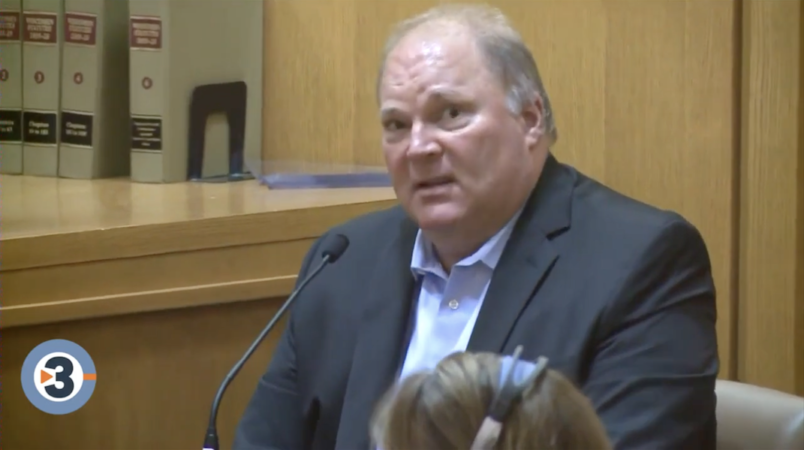
Chaos and Controversy
The chaos and controversy around voting rules has caught some Wisconsinites off guard. The drop-box ruling was especially disconcerting to people with disabilities and their relatives.
Before the August primary, Eugene Wojciechowski, of West Allis, went to City Hall to pay his water bill and drop off his ballot and his wife’s at the clerk’s office. A staffer asked him for ID and then told him he could not deliver his wife’s ballot. Not even spouses of the disabled could do so at the time, thanks to the state Supreme Court decision.
“I said: ‘What do you mean? She’s in a wheelchair,’” Wojciechowski recalled. He noted that the ballots were “all sealed and witnessed and everything.”
The voting constraints were “stupid,” he said, but ultimately he decided he would just mail his wife’s ballot for her, even though it was unclear at the time whether that was permitted.
He has filed an official complaint with the Wisconsin Elections Commission and weeks later remains exasperated.
“I mean, what the hell is going on in this city? I’ve lived here all my life,” Wojciechowski said.
“They’re stopping people from voting, that’s all it is.”
The state Supreme Court decision came in response to a suit brought by a conservative group, the Wisconsin Institute for Law & Liberty. An attorney for the group, Rick Esenberg, argued that regulators had issued unlawful guidance allowing ballots to be delivered on behalf of others, including potentially “paid activists, paid canvassers who go around and collect ballots and place them in a mailbox.” Those allegations echoed a widely circulated conspiracy theory about people, labeled mules, delivering heaps of fraudulent ballots.
Esenberg conceded in his oral arguments that he had no evidence of that type of activity in Wisconsin.
Four people with disabilities sued in federal court, including Martha Chambers, of Milwaukee, who was left paralyzed from the neck down after being thrown from a horse 27 years ago.
“Here they are making things more difficult for me, and my life is difficult enough,” she said.
A federal judge ruled in favor of the plaintiffs and ordered the state elections commission to tell local clerks that voters with disabilities must be allowed to receive help from someone of their choosing to return their absentee ballots. The clerks do not have to confirm that the voter is disabled or ask the emissary for ID.
Still, it’s not at all certain that the ruling will be followed uniformly.
The state has approximately 1,850 local clerks who administer elections in cities, towns and villages. Even before the federal ruling, practices were wildly inconsistent, said Barbara Beckert, director of external advocacy for Disability Rights Wisconsin.
“There is continuing confusion in Wisconsin as voting practices and policies continue to change in response to litigation as well as action by the Legislature,” Beckert said.
Political observers say there’s increased trepidation among all kinds of voters over whether their ballot will count and who will be watching at the polls.
“People are afraid,” said Milwaukee native Bruce Colburn, a union activist and lead organizer of Souls to the Polls, a traditional get-out-the-vote drive in Black communities. “Are they going to do something wrong? Then you have all these lawyers and people making complaints in the court system for nothing. And it makes it more difficult. It scares people. If they get something wrong or they don’t do it exactly right, something’s going to happen to them.”
Jeffreys, the clerk in Green Bay, described poll watchers on primary day this year as “aggressive and interfering.” Rather than being cordial and unobtrusive, she said, some observers were repeatedly questioning voting officials and disrupting the process.
“That, I think, is a really big change with elections in Wisconsin. There’s just a lot more of a gaze, and the gaze is not always friendly and cooperative.”
Unlike poll workers, who carry out official duties and must be local residents, poll watchers can come from anywhere. They are not required to undergo training.
“Observers are a very important part of the process,” Jeffreys said. “They lend transparency; they help educate people. They themselves become educated. But sometimes observers have anointed themselves as the people who will uncover problems. And oftentimes observers are not equipped with the information in order to do that.”
The result, she said, can be baseless allegations.
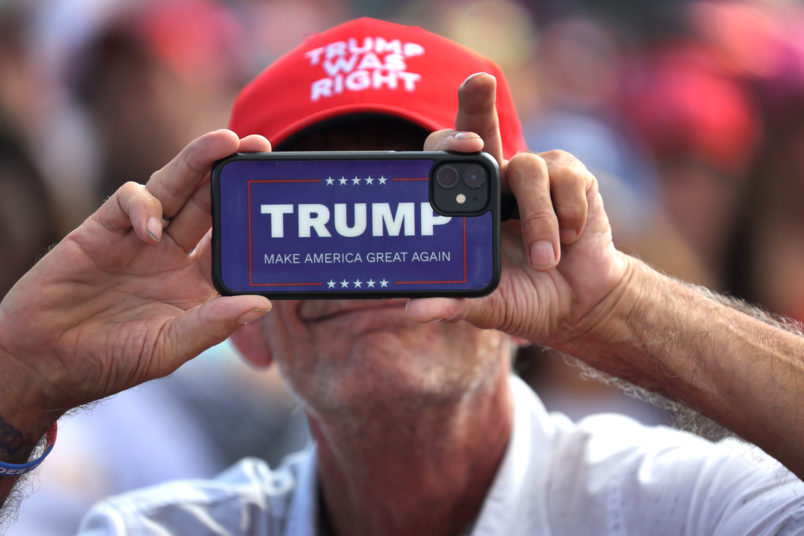
Pointing Toward 2024
If Republicans in Wisconsin want to find a way around the Democratic governor, Evers, and his veto pen, they have two choices.
They can unseat him in November or bulk up their legislative advantage to what is called a supermajority. Achieving supermajorities in both the Assembly and the Senate, which would make bills veto-proof, is considered the longer shot. Winning the governor’s race is not.
Michels, the Republican nominee, is the owner of a construction company and has never held public office. He was endorsed by Trump in the primary.
Michels has embraced the idea that the 2020 election was not run fairly, even though a state recount showed Biden won and multiple courts agreed. Asked if the 2020 election was stolen, Michels told the “Regular Joe Show” on the radio in May: “Maybe, right. We know there was certainly a lot of bad stuff that happened. There were certainly illegal legal ballots. How many? I don’t know if Justice Gableman knows. I don’t know if anybody knows. We got to make sure. I will make sure it doesn’t happen again.”
A Michels victory would set the stage for reconsideration of a range of restrictive voting laws that were vetoed by Evers.
Among the bills passed by Republicans and blocked by Evers were proposals that would require the state to use federal databases to check citizenship status; remove voters from the rolls based on information submitted for jury selection; make it harder to request an absentee ballot; and classify it a felony to incorrectly attest that a person is “indefinitely confined” so they can vote absentee (a provision widely used during the pandemic).
Wisconsin already is a place that researchers have identified as difficult for voters to navigate. The Cost of Voting Index, a Northern Illinois University project that studies each state, lists it near the bottom, at 47th, because of a strict voter ID law, limits on early voting and proof of residency requirements that affect registration drives.
“Over the last several election cycles, other states have adopted policies that remove barriers to voting,” one of the researchers, Michael J. Pomante II, now with the election protection group States United Action, said in an email.
But Wisconsin, he added, “has continued to pass and implement laws that create barriers to casting a ballot.”
In 2024, all these factors — from who is able to vote to who runs the executive branch and who runs the Legislature — will play a role in determining which presidential candidate gets Wisconsin’s electoral votes.
The governor and the Wisconsin Elections Commission are part of the state’s certification process, with the secretary of state making it official by affixing the state seal. And the state Supreme Court stands ready to rule on election law disputes.
The Nov. 8 midterm election will determine which party holds the office of governor and secretary of state when voting occurs in 2024. Michels has proposed a “full reorganization” of the Wisconsin Elections Commission if he is elected.
He hasn’t explained what that would look like, other than to say in a primary debate that he envisioned replacing it with a board made up of appointees named by each of the state’s congressional districts. Wisconsin now has eight seats in the U.S. House, five held by Republicans and three by Democrats.
Evers, by contrast, backs the commission in its current form. He noted its origins in the state’s Legislature seven years ago.
“Republicans created this system, and it works,” he said in a statement released to ProPublica. “Our last election was fair and secure, as was proven by a recount, our law enforcement agencies, and the courts.”





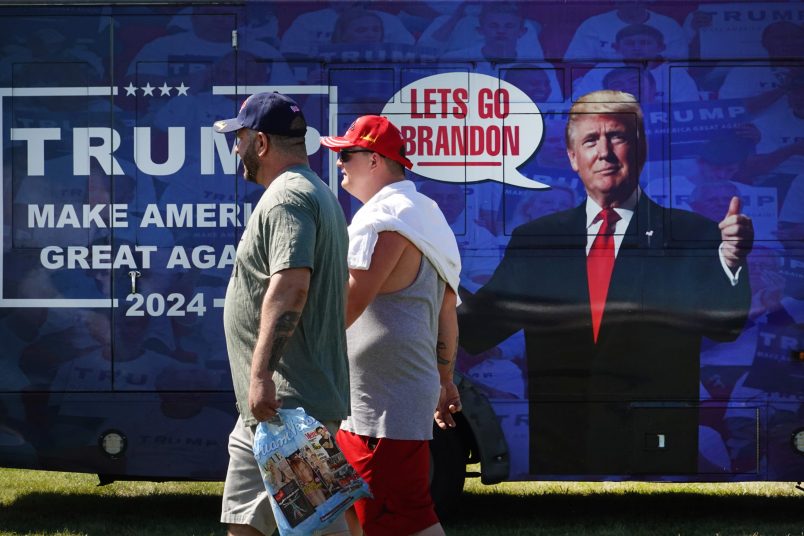
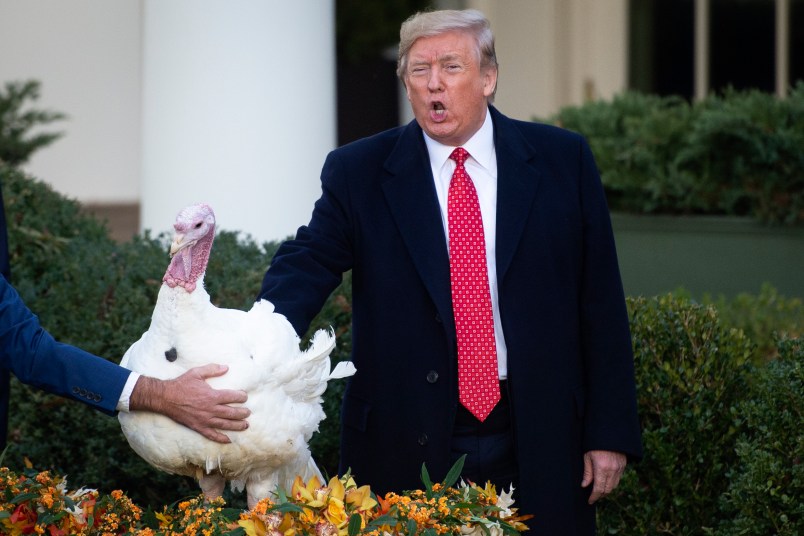
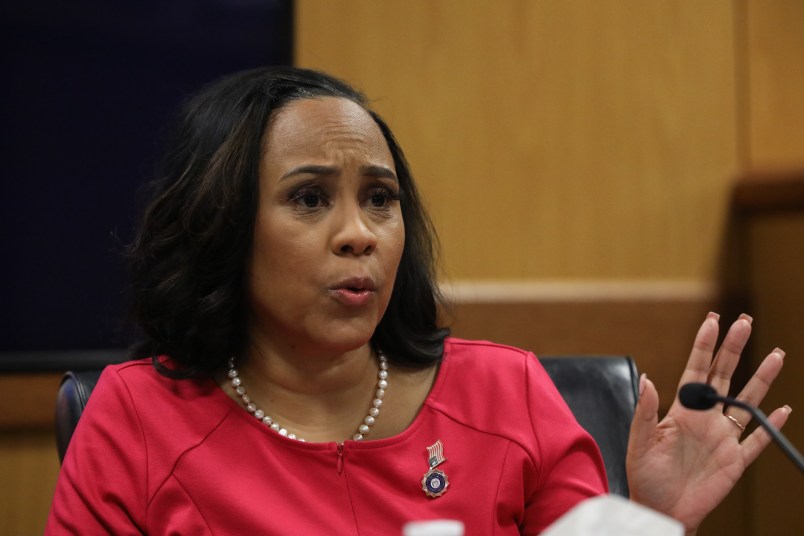
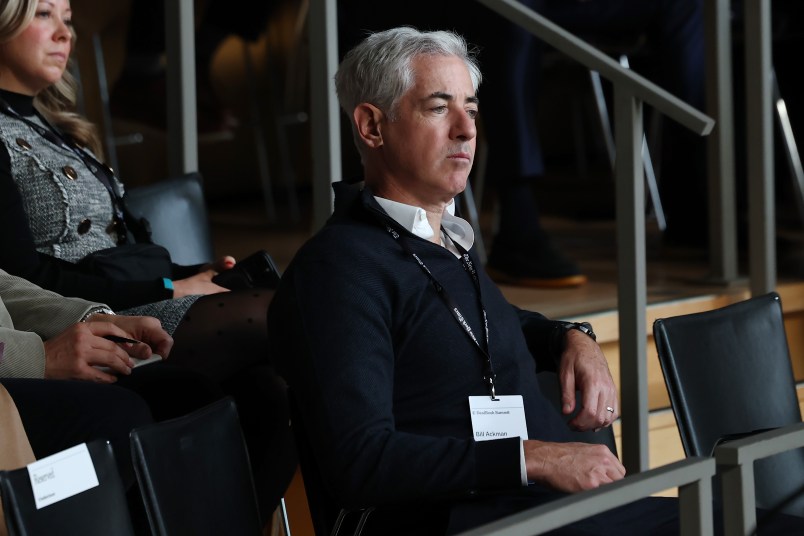
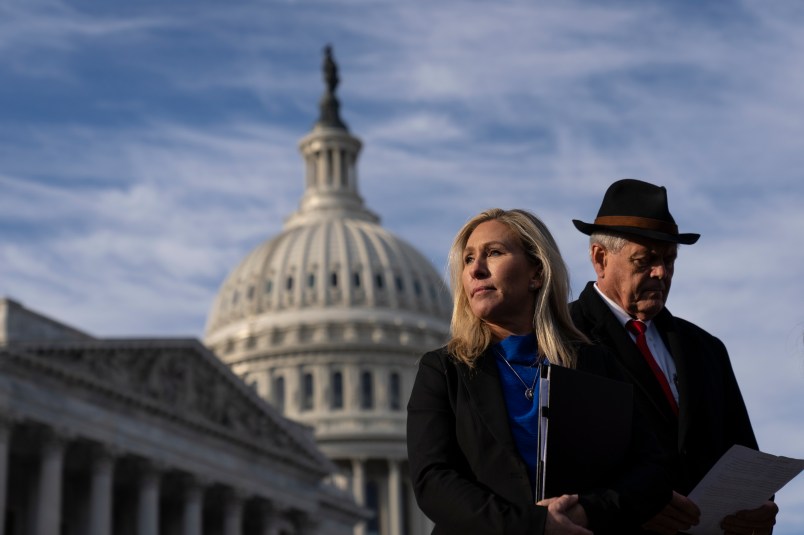
I know all of this looks scary but there’s one thing everyone should remember while we’re watching all of these plots unfold to undermine our democracy: These people are idiots! They’ve proven it time and time again with all of their blundering in their past attempts to take over this country.
I’m not saying they can’t succeed (don’t get me wrong). I’m just trying to point out the fact that things could be much worse. Imagine if all of these would be usurpers had IQs above room temperature?
The National Socialists in Germany rose to power in 1932 partly on economic messaging. US cable news is allowing similar messaging to again dominate in the end of the mid-term cycle. Ron DeSantis, for example, is not called out of his failure to acknowledge the causes of climate disruption. Kevin McCarthy is so malleable it is hard to know what he stands or slithers for. But “Bidenflation”, “Woke Communist Agenda” and all other assorted bullshit. What is particularly annoying is that economists understand that the constellation of challenges arrayed against economic growth are rare, but not bizarre. Pandemics wane, wars are finite and supply chains ultimately can be reconstituted. Instead, these challenges are framed as problems without context. Why would anyone want to put such incompetents in charge of economic policy? Liz “Austerity 2.0” Truss did a 65-billion-pound boo-boo just days into her PMship. Imagine the US economy governed by Kevin McCarthy’s belief system.
Forewarned is fore-armed. WI has earned the right to be singled out.
Democratic AG Josh Kaul did NOTHING about the fraud electors…or much of anything to do with elections.
But the main problem is the state lege, firmly R cemented.
Yes, the WI legislature has given itself all the power in the State and it’s run by morons who think they rule the world. Gerrymandering will do that.
Hell, this is the same group that removed the Walker powers from Evers before he was even inaugurated. Voted themselves in charge of everything.